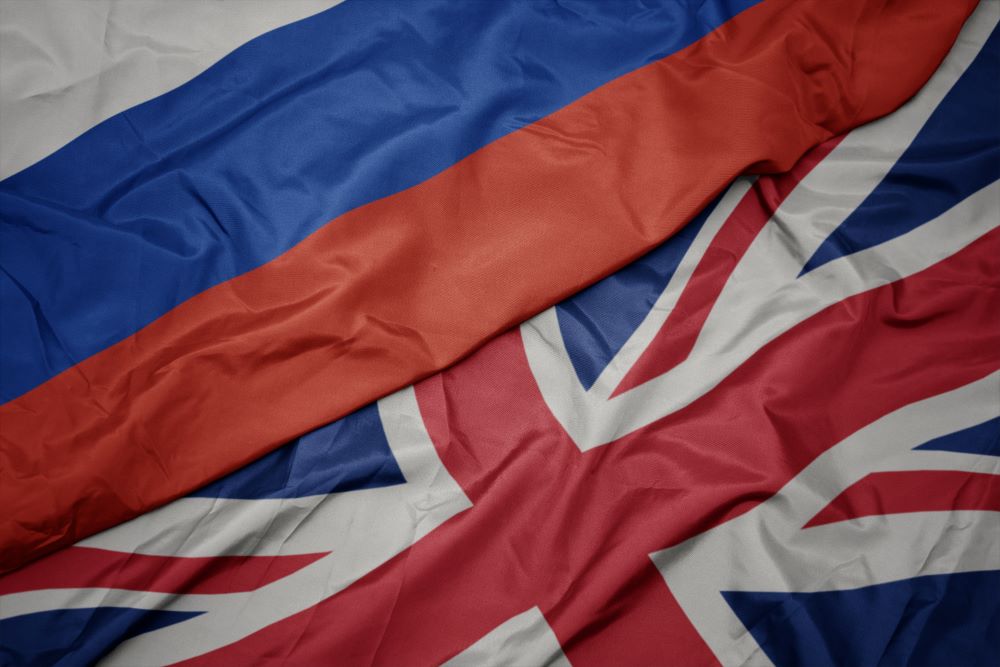
Following Russia’s invasion of Ukraine, sanctions and embargoes will likely continue to dominate the news agenda in the coming days and beyond.
However, how effective will Western sanctions be in suppressing Russian aggression in Ukraine and what impact will they end up having on businesses doing trade with Russia?
What knock-on impacts could an escalation in the Ukraine crisis have throughout global supply chains?
The IOE&IT Daily Update here looks at some of the ways UK traders could be impacted.
Russia's strength
First of all, although wide-ranging sanctions have already been imposed on Russia, with more expected to follow in the coming days, debate has emerged as to how effective they will be.
This is because Russia has been preparing its economy for such measures.
According to the BBC, Russia’s international reserves are at a record high of $630bn in foreign exchange and gold, while it has also reduced its reliance on foreign loans and investments.
That said, Russia's economy is similar in size to Spain's despite having a population nearly three times as large, according to data from the World Bank.
Reprisals
Russia will also be expected to implement its own tit-for-tat response, imposing sanctions and bans on western goods entering Russia.
After its occupation of Crimea in 2014, western sanctions imposed on Russia sparked a mirrored response from the Kremlin, with agricultural imports from Europe banned.
Gas dependence
The most notable impact of the crisis could be on gas and energy supply into Europe.
Russia accounts for 40% of Europe’s natural gas supplies, the Guardian reports, while Gazprom Energy has been one of the largest suppliers of gas for UK businesses since 2010.
The conflict is likely to lead to a further inflation of already rocketing gas prices.
A spokesperson for trade association Energy UK told the Guardian that “further disruption to the market and supplies would be a big concern if it increases prices further,” with rising energy costs to businesses likely to be passed on to customers globally.
Will Webster, energy policy manager for the industry lobby group Oil and Gas UK, also told the Guardian: “If the Russians reduce deliveries of gas to Europe, then it has to come from somewhere else, most likely as shipments of liquefied natural gas. That will increase competition for supplies, driving up prices.”
Crops and fertilisers
Russia also controls a number of commodities that the rest of the world needs.
Reuters reports that Russia and Ukraine account for around 29% of global wheat exports, 19% of world corn supplies, and 80% of world sunflower oil exports. Wheat prices have today hit a nine-year high today (24 February)
Russia is also one of the world’s biggest exporters of all three major groups of fertilizers. Any cuts in supply could cause a surge in already high nutrient prices, affecting crop yields and cause further food inflation.
Semiconductors
Ukraine also produces 90% of US semiconductor grade neon, as well as 35% of the US supply of palladium – elements used by industrial lasers to produce computer chips.
Neon, critical for lasers used to make chips, is a biproduct of Russian steel manufacturing, which is then purified in Ukraine. Palladium is also used in sensors and memory chips.
Reuters reports a memo from the Whitehouse last week has already urged the microchip industry to urgently look into diversifying its supplies of neon, krypton, and xenon – all of which are needed to make chips which are already globally in short supply.
UK-Russia trade
According to latest government figures, Russia is the UK's 19th largest trading partner, with trade worth £15.9bn in the year to the end of Q3 2021.
The top UK exports to Russia last year were cars, pharmaceuticals, specialised machinery, power generators, and general machinery – all sectors which could be impacted by the crisis.
According to iNews, cars accounted for 14.6% (£386m) of all UK goods exported to Russia in 2021, while pharmaceuticals accounted for just over 10%.
Services exported to Russia include business services (worth £369m), financial services (£137m) and telecommunications (£82m).
Roger Arthey, chair of the IOE&IT’s Export Control Profession, has advised traders to stay up-to-date with changing rules for trade with Russia by signing up to daily updates from the government here.
